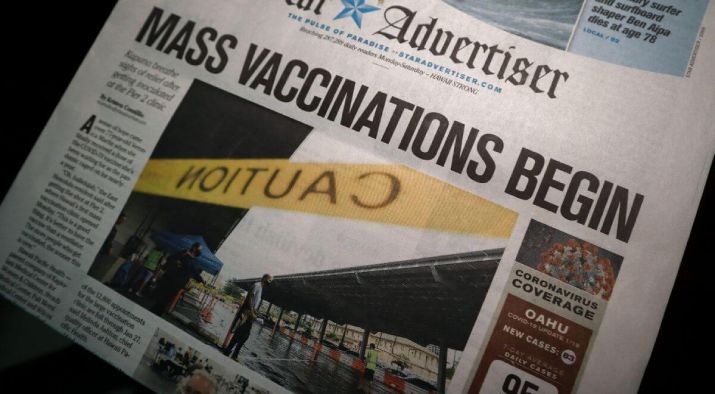Reboot Study Identifies Strategies to Fight COVID Misinformation
Findings could have significant implications for maximizing vaccine acceptance.

Contact: Kent Fischer, [email protected]
May 24, 2021
PARIS – A new research paper, funded in part by the Reboot Foundation, outlines effective strategies for combating misinformation and disinformation campaigns, particularly around the COVID-19 pandemic.
The strategies tested by researchers at the University of Cambridge and médialab Sciences Po in Paris are based on the concept of “psychological herd immunity” and establish promising avenues for fighting misinformation now and in the future. The researchers tested the effectiveness of two so-called “prebunking” methods for fighting disinformation. “Prebunking” educates people about disinformation techniques so that they’ll be better prepared to recognize them in the real world.
“COVID has shown us how dangerous misinformation and conspiracy theories can be,” said Helen Lee Bouygues, founder and president of the Reboot Foundation. “This research recognizes that what we think and believe can have a serious impact on our health decisions–for good or ill–and looks at scalable ways to guard against a virus of misinformation in our society.”
The paper, titled “Towards Psychological Herd Immunity,” could have significant implications for maximizing vaccine uptake and combatting future “infodemics,” as the World Health Organization (WHO) has dubbed the crisis of misinformation surrounding the virus.
The first “prebunking” method tested was a game, Go Viral!, developed in cooperation with the UK Cabinet Office and with support from the WHO. In Go Viral! users play a character trying to spread disinformation on social media. Through the game, players are exposed to common disinformation techniques such as scapegoating and appealing to fallacious “experts.”
The researchers found that exposure to the game helped improve people’s sensitivity to the manipulativeness of misinformation in the real world, and boosted their confidence in spotting misinformation. The effect persisted over time as well, lasting at least a week.
The second method was more “passive,” exposing participants to infographics created by the United Nations that warned against COVID-19 misinformation. The graphics were also shown to be effective, albeit less so than the “active” game. Users were also more likely to share the game than the infographics.
“Our findings show that teaching people what are the dubious tactics that underlie misinformation campaigns online can help them to better detect it,” said one of the researchers, Manon Berriche, a PhD student at médialab Sciences Po. “These approaches could be put into use quickly by governments, schools and media literacy organizations to help combat vaccine hesitancy around COVID.”
Added Bouygues: “This research points to an important educational tool–one that is inexpensive, accessible, and highly scalable–in the ongoing fight against misinformation. It is a promising early step in what unfortunately may be a long journey.”
